Related Research Articles
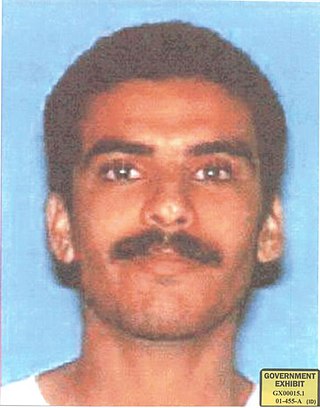
Khalid Muhammad Abdallah al-Mihdhar was a Saudi terrorist hijacker. He was one of the five hijackers of American Airlines Flight 77, which was flown into the Pentagon as part of the 11 September attacks.

After the September 11, 2001 attacks, the United States government responded by commencing immediate rescue operations at the World Trade Center site, grounding civilian aircraft, and beginning a long-term response that included official investigations, legislative changes, military action, and restoration projects.

"Truth serum" is a colloquial name for any of a range of psychoactive drugs used in an effort to obtain information from subjects who are unable or unwilling to provide it otherwise. These include ethanol, scopolamine, 3-quinuclidinyl benzilate, midazolam, flunitrazepam, sodium thiopental, and amobarbital, among others.

Waterboarding is a form of torture in which water is poured over a cloth covering the face and breathing passages of an immobilized captive, causing the person to experience the sensation of drowning. In the most common method of waterboarding, the captive's face is covered with cloth or some other thin material and immobilized on their back at an incline of 10 to 20 degrees. Torturers pour water onto the face over the breathing passages, causing an almost immediate gag reflex and creating a drowning sensation for the captive. Normally, water is poured intermittently to prevent death; however, if the water is poured uninterruptedly it will lead to death by asphyxia. Waterboarding can cause extreme pain, damage to lungs, brain damage from oxygen deprivation, other physical injuries including broken bones due to struggling against restraints, and lasting psychological damage. Adverse physical effects can last for months, and psychological effects for years. The term "water board torture" appeared in press reports as early as 1976.
In American criminal law, a material witness is a person with information alleged to be material concerning a criminal proceeding. The authority to detain material witnesses dates to the First Judiciary Act of 1789, but the Bail Reform Act of 1984 most recently amended the text of the statute, and it is now codified at 18 U.S.C. § 3144. The most recent version allows material witnesses to be held to ensure the giving of their testimony in criminal proceedings or to a grand jury.
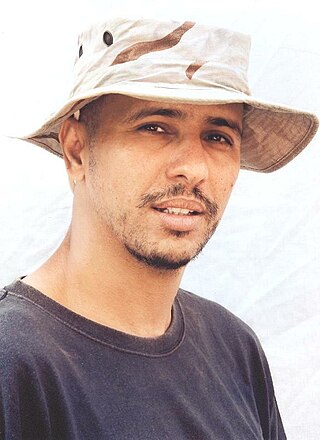
Mohamedou Ould Slahi is a Mauritanian engineer who was detained at Guantánamo Bay detention camp without charge from 2002 until his release on October 17, 2016.

Abd al-Rahim Hussein Muhammed Abdu al-Nashiri is a Saudi Arabian citizen alleged to be the mastermind of the bombing of USS Cole and other maritime attacks. He is alleged to have headed al-Qaeda operations in the Persian Gulf and the Gulf states prior to his capture in November 2002 by the CIA's Special Activities Division.
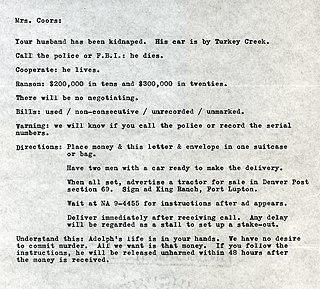
Extraordinary rendition is a euphemism for state-sponsored kidnapping in another jurisdiction and transfer to a third state. The phrase usually refers to a United States-led program used during the War on Terror, which had the purpose of circumventing the source country's laws on interrogation, detention, extradition and/or torture. Extraordinary rendition is a type of extraterritorial abduction, but not all extraterritorial abductions include transfer to a third country.
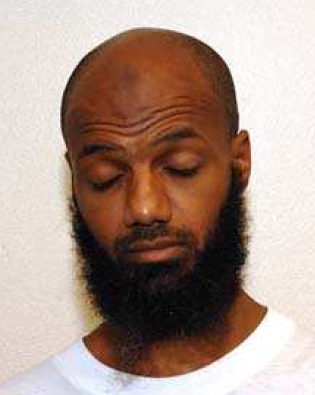
Binyam Ahmed Mohamed, also referred to as Benjamin Mohammed, Benyam Mohammed or Benyam Mohammed al-Habashi, is an Ethiopian national and United Kingdom resident, who was detained as a suspected enemy combatant by the US Government in Guantanamo Bay prison between 2004 and 2009 without charges. He was arrested in Pakistan and transported first to Morocco under the US's extraordinary rendition program, where he claimed to have been interrogated under torture.

Dilawar, also known as Dilawar of Yakubi, was an Afghan farmer and taxi driver who was tortured to death by US Army soldiers at the Bagram Collection Point, a US military detention center in Afghanistan.
Khaled El-Masri is a German and Lebanese citizen who was mistakenly abducted by the Macedonian police in 2003, and handed over to the U.S. Central Intelligence Agency (CIA). While in CIA custody, he was flown to Afghanistan, where he was held at a black site and routinely interrogated, beaten, strip-searched, sodomized, and subjected to other cruel forms of inhumane and degrading treatment and torture. After El-Masri held hunger strikes, and was detained for four months in the "Salt Pit", the CIA finally admitted his arrest was a mistake and released him. He is believed to be among an estimated 3,000 detainees, including several key leaders of al Qaeda, whom the CIA captured from 2001 to 2005, in its campaign to dismantle terrorist networks.
Majid Shoukat Khan is a Pakistani who was the only known legal resident of the United States held in the Guantanamo Bay Detainment Camp. He was a "high value detainee" subject to “enhanced interrogation” by the U.S. intelligence forces.
Pacha Khan Zadran is a militia leader and a politician in the southeast of Afghanistan. He was a former anti-Soviet fighter and militia leader who played a role in driving the Taliban from Paktia Province in the 2001 invasion, with American backing. He subsequently assumed the governorship of the province. In 2002, he engaged in a violent conflict with rival tribal leaders in the province over the Governorship of the province, shelling Gardez City and obstructing two separate appointed governors sent by Hamid Karzai.

United States v. Khalid Sheikh Mohammed, et al. is the trial of five alleged al-Qaeda members for aiding the September 11, 2001 attacks. Charges were announced by Brigadier General Thomas W. Hartmann on February 11, 2008 at a press conference hosted by the Pentagon. The men charged are Khalid Sheikh Mohammed, Walid bin Attash, Ramzi bin al-Shibh, Ammar al-Baluchi, and Mustafa Ahmad al Hawsawi.
This page lists trials related to the September 11, 2001, terrorist attacks.
Attribution of the 2008 Mumbai attacks were first made by the Indian authorities who said that the Mumbai attacks were directed by Lashkar-e-Taiba militants inside Pakistan. American intelligence agencies also agree with this attribution. Pakistan initially contested this attribution, but agreed this was the case on 7 January 2009. To back up its accusations, the Indian government supplied a dossier to Pakistan's high commission in Delhi. The Pakistan government dismissed the dossier as "not evidence," but also announced that it had detained over a hundred members of Jamaat-ud-Dawa, a charity linked with Lashkar-e-Taiba. In February 2009, Pakistan's Interior Minister Rehman Malik agreed that "some part of the conspiracy" did take place in Pakistan.
Soon after the attacks of September 11, 2001, the United States Government began detaining people who fit the profile of the suspected hijackers: mostly male, Arabic, or Muslim noncitizens. According to Justice Berman, they had arrested 1,182 people as of November 5, 2001. By late November 2001, more than 1,200 people had been detained. A document made and published by the US Department of Justice (DOJ) contained information about the detainees.
The D.C. Five is a group of Muslim Americans from the suburbs of Washington, D.C., with suspected ties to terrorism. The five men were detained on December 9, 2009, during a police raid in Pakistan on a house with links to a militant group. In part of an increasing trend in homegrown terrorism, they were in their late teens or early twenties.
The Guantánamo Bay files leak began on 24 April 2011, when WikiLeaks, along with The New York Times, NPR and The Guardian and other independent news organizations, began publishing 779 formerly secret documents relating to detainees at the United States' Guantánamo Bay detention camp established in 2002 after its invasion of Afghanistan in 2001. The documents consist of classified assessments, interviews, and internal memos about detainees, which were written by the Pentagon's Joint Task Force Guantanamo, headquartered at Guantanamo Bay Naval Base. The documents are marked "secret" and NOFORN.
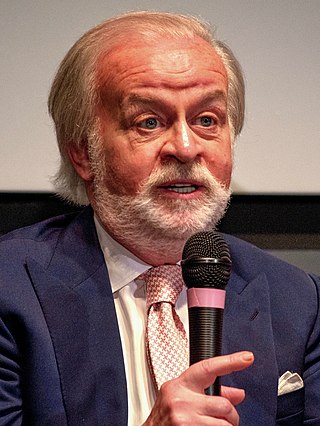
John Anthony Rizzo was an American attorney who worked as a lawyer in the Central Intelligence Agency for 34 years. He was the deputy counsel or acting general counsel of the CIA for the first nine years of the War on Terror, during which the CIA held dozens of detainees in black site prisons around the globe.
References
- ↑ "New Jersey men to be arraigned for credit card fraud - CNN". Articles.cnn.com. 2002-01-16. Retrieved 2012-05-17.
- 1 2 3 4 Christopher Drew and William K. Rashbaum (2001-12-13). "A NATION CHALLENGED - THE DETAINEES - A NATION CHALLENGED - THE DETAINEES - 2 Suspects Found on Train Probably Are Not Linked to Attack, Officials Say". The New York Times . New York City; Texas; Jersey City (Nj); Washington (Dc). Retrieved 2012-05-17.
- ↑ Serge F. Kovaleski and Fredrick Kunkle (2001-11-18). "Northern New Jersey Draws Probers' Eyes". The Washington Post.
- ↑ Jack Douglas Jr (2001-10-25). "US TX: Pair On Train Were Initially Drug Suspects". Fort Worth Star-Telegram.
- ↑ Karen Gullo (2001-10-25). "Ashcroft Discusses New Powers". Associated Press/Washington Post. Archived from the original on 2013-05-18.
- ↑ "US investigators consider resorting to 'truth serum'". New Zealand Herald. October 23, 2001.
- ↑ David Walsh (10 November 2001). "US liberal pundits debate the value of torture".
- ↑ Jonathan Alter (November 4, 2001). "Time To Think About Torture". Newsweek.
- 1 2 3 4 Omer Farooq (10 February 2003). "Indian terror suspects 'to sue US'". BBC.
- ↑ "9/11 suspects Azmath, Ayub to face trial at home". Times of India. September 24, 2002.
- ↑ "2002 — National Reporting". Pulitzer Prizes.
- ↑ Dan Eggen and Bob Woodward (September 29, 2001). "U.S. Develops Picture of Overseas Plot". The Washington Post.